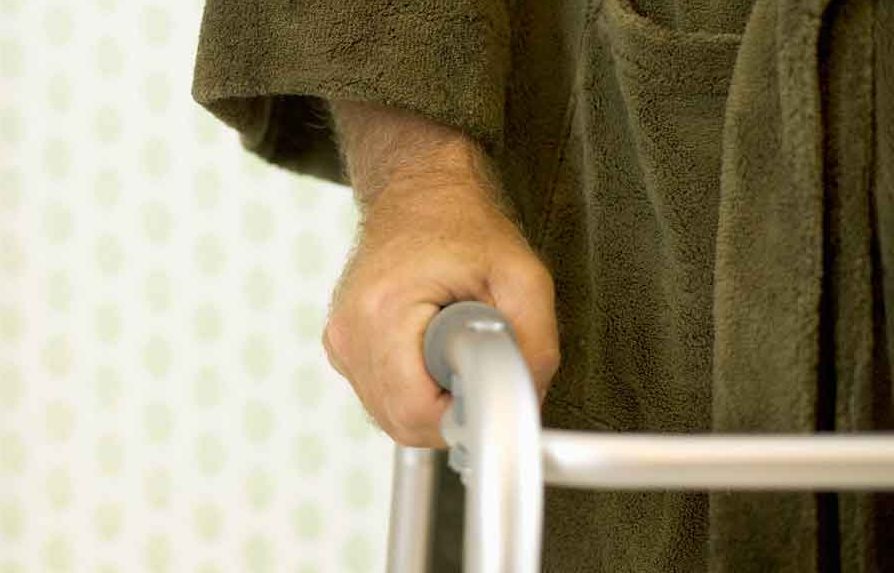How to Recognize Senior Abuse

Verbal abuse, typically insults, and physical mistreatment are clues you should look for if someone is caring for your elder. Here's what you can do.
Elder abuse is common. Elders can abuse each other. Their children can be the abusers. Nursing home abuse may happen more often than people may think.
Who gets abused?
Women are more likely to suffer abuse than males. According to one survey, more than 64 percent of abused seniors are women. About 1 in 10 people aged 60 or older who live at home are abused, according to the Centers for Disease Control and Prevention.
Elders who get abused include:
- People who experienced trauma earlier in life are more likely to be abused when they’re older.
- Poor physical and mental condition can lead to abuse. People with Alzheimer's disease are especially vulnerable.
- Lower income seniors are more likely to suffer abuse. For instance, someone who relies on Medicaid to pay for nursing care may live in a lower-quality facility with higher rates of neglect and abuse.
In a survey of nurses and aides in long-term care facilities, 81 percent said they had witnessed emotional abuse.
Common types of abuse
- Physical abuse
- Sexual abuse
- Emotional or psychological abuse
- Neglect
- Financial abuse
YOU MIGHT ALSO LIKE: More Men Are Caring for Women
Signs and symptoms of elder abuse
- A “new best friend” who is willing to care for the senior for little or no cost.
- Recent changes in banking or spending patterns.
- Your elder no longer sees friends and family.
- A caregiver has problems with drugs, alcohol, anger, or emotional instability.
- A caregiver is financially dependent on the older person.
- A family pet seems neglected or abused.
- You see bruises, cuts, bed sores, or untreated problems with an elder’s hearing, eyesight, or teeth.
- Your elder complains that someone is taking things without her permission, asking her to do things she’s not comfortable with, or leaving her alone at home too often .
Depression may be the only telltale sign that a bad situation has become abusive. Let’s say you’ve known for years that your uncle swears at your aunt when he drinks at night. She used to go to bed on her own, but now she needs his help on the stairs. He’ll swear at her if he’s onto his third beer.
What you can do
If your parents aren’t getting along in a nursing home, you might ask the staff to separate them. You could also ask staff to keep certain people away from your loved one. Monitor the situation.
Outside of nursing homes, abusers tend to be adult children or spouses. Drug or health problems, unemployment, and problems with the police are risk factors, research suggests. Some sons and daughters finance addictions with a parent’s monthly check or leave him or her with rambunctious small children even though he or she is frail.
People tend to suspect strangers or home-care aides of financial fraud, but family, friends, and neighbors are more likely to be the culprits.
Don’t assume that people in their 70s can protect themselves. They are more likely to live with abusive spouses and children.
Verbal and emotional abuse can be even more painful or just as debilitating as physical abuse.
What counts as emotional abuse?
Be aware if you or an elder has been:
- Insulted, called names, or swore at
- Threatened
- Undermined or belittled
- Excluded or repeatedly ignored
Emotional abuse can also include someone threatening to harm others your elder cares about or preventing them from seeing loved ones or friends.
Try to get your elder alone to ask about your suspicions or observations of abuse.
If you see or hear of an injury, talk to your loved one and other household members separately to see if they explain the situation the same way. With your elder, you might start with open-ended questions, like:
- “Do you feel safe at home?”
- “Has someone not helped you when you needed help?”
Resources
Intervention programs can help your aunt think through a solution and take steps. She may need urging and financial advice to hire a caregiver a few afternoons a week, taking pressure off her husband. Maybe the family needs to confront your uncle about his drinking.
It’s possible that any questioning could make your uncle behave even worse or make it impossible for you to see your aunt. Even if you’re not certain whether the situation constitutes abuse, bring your concern to professionals. You can reach an Eldercare Locator by telephone at 1-800-677-1116, Monday through Friday, 10 a.m. to 6 p.m. Eastern Standard Time. Specially trained operators will refer you to a local agency that can help.
You can find help in your area from the National Adult Protective Services Association. In most states, you can discuss or report suspected abuse without giving your name. Even if you do, the professionals who follow up will not reveal your name to your aunt or uncle. But you will need to supply a name, address, and contact information for the suspected victim.
Other recourses include:
YOU MIGHT ALSO LIKE: Why Drinking Water Is Important for Seniors
Updated:
November 22, 2023
Reviewed By:
Janet O’Dell, RN